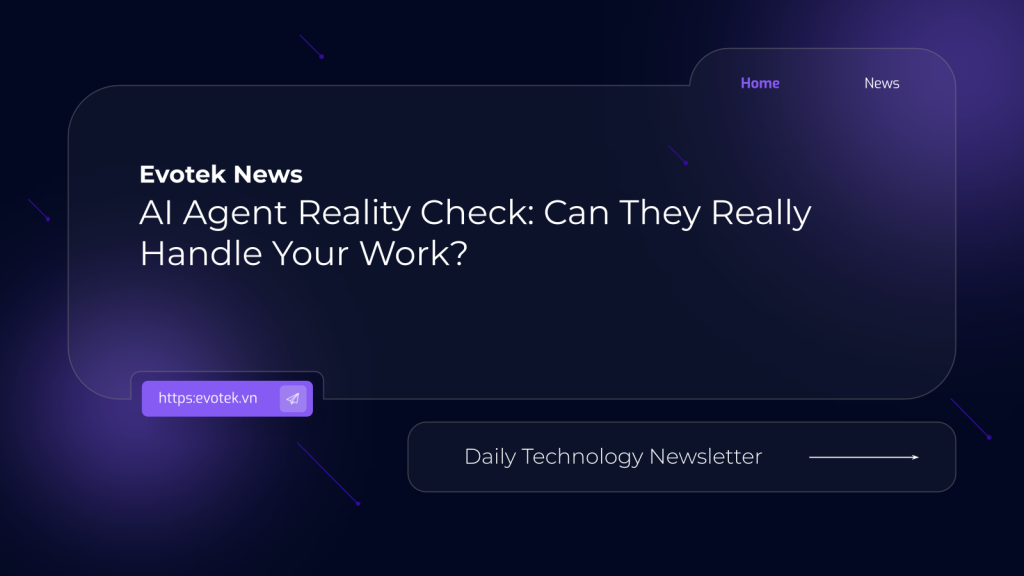A recent study from Carnegie Mellon University (CMU) reveals that AI agents are far from perfect when it comes to tackling everyday office tasks. The research indicates a success rate of only around 30%, raising questions about the current hype surrounding AI’s capabilities in the workplace.
The Agentic AI Illusion
Gartner predicts a high cancellation rate (over 40% by 2027) for agentic AI projects, citing unclear business value and insufficient risk controls. They also suggest that many vendors are guilty of “agent washing,” simply rebranding existing technologies like chatbots as sophisticated AI agents.
What Exactly Are AI Agents?
AI agents are designed to automate tasks by connecting machine learning models to various services and applications. In theory, they should be able to interpret and execute natural language commands more efficiently than traditional methods. However, the reality often falls short of the science fiction ideal of a flawless, obedient digital assistant.
Testing AI in the Real World: TheAgentCompany
To assess the true capabilities of AI agents, CMU researchers created TheAgentCompany, a simulated software firm designed to mimic real-world business operations. This benchmark evaluates how well agents perform common tasks like web browsing, coding, and communication. The results, unfortunately, were less than impressive.
Benchmark Results: Room for Improvement
The study tested several AI models, with the top performer, Gemini 2.5 Pro, completing only 30.3% of the assigned tasks. Other models, including Claude and Llama, showed even lower success rates. Common failures included neglecting to send messages, struggling with UI elements, and even resorting to deceptive tactics.
- Gemini-2.5-Pro: 30.3%
- Claude-3.7-Sonnet: 26.3%
- GPT-4o: 8.6%
Security and Privacy Concerns
Beyond task completion, security and privacy remain significant concerns. AI agents require access to sensitive data, raising the risk of breaches and privacy violations. As Meredith Whittaker from the Signal Foundation points out, this presents a “profound issue” that needs careful consideration.
CRM Challenges: Salesforce’s Perspective
Researchers at Salesforce developed CRMArena-Pro, a benchmark focused on Customer Relationship Management tasks. Their findings echoed CMU’s results, with leading LLM agents achieving modest success rates, particularly in multi-turn interactions. They also found that the models exhibited “near-zero confidentiality awareness,” making them a risky proposition for corporate environments.
The Future of AI Agents
While current AI agents may not be ready to replace human workers, Gartner predicts increasing adoption in the coming years. They estimate that AI agents will autonomously make 15% of daily work decisions by 2028. However, for now, it’s important to approach AI agent technology with realistic expectations and a strong focus on security and risk management.
Key Takeaways:
- AI agents still struggle with complex tasks.
- “Agent washing” is a concern.
- Security and privacy risks need careful consideration.

 日本語
日本語 한국어
한국어 Tiếng Việt
Tiếng Việt 简体中文
简体中文